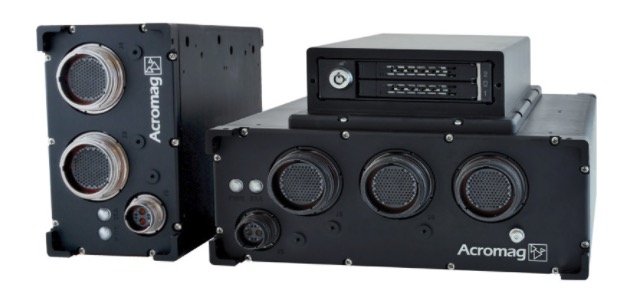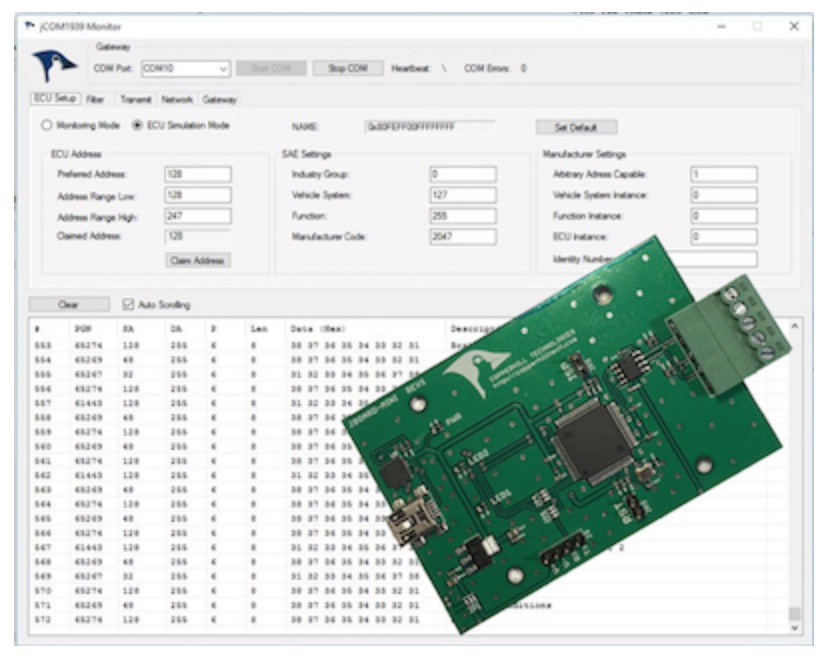Blog
Recent Posts
Rugged Embedded Computer Features Intel Core i7 CPU, Optional CAN Bus Ports
Posted by on
Acromag (USA) introduced its ARCX‑4000 customizable embedded computer designed for rugged environments, such as military and aerospace applications. A CAN Bus interface can be added e.g., for multi-sensor monitoring on mobile applications.
The device features an Intel i7 COM Express Type 6 processor, which offers access to various computer peripherals. The processor supports floating-point computations, media, graphics, and security. The computer system can hold up to four of the company’s Acropack modules used for signal processing, communication, and control functions. More than 25 Acropack modules are available, e.g., for CAN Bus (Classical CAN), A/D conversion, discrete I/Os, EIA‑232, EIA‑485, MIL‑STD‑1553, Gigabit Ethernet, and more. PMC, XMC, Mini PCIe, and MSATA slots allow further I/Os, storage modules, and FPGA modules. Optional removable solid-state drives allow for a variety of configurations, including security access.
The front panel of the IP67-rated device features 38999‑type cylindrical connectors for extended I/O interfacing. An optional power filter meets the requirements of MIL‑STD‑704 and MIL‑STD‑1275. Further available interfaces include two HDMI/DVI, display ports, VGA, three USB 2.0 ports, Sata, two Gigabit Ethernet, EIA‑232, and EIA‑485 ports.
Integrated LEDs signal the faults and operation status. Typically, the device is applicable in military and aerospace systems such as vetronics, C4ISR, payload management, as well as command and control for drones and robotics. It also serves as a portable data acquisition system in an aircraft. Adding an FPGA and a graphic card allows for a video transfer.
SAE J1939 ECU Simulator Board With USB Port
The jCOM.J1939.USB gateway board is a high-performance, low-latency vehicle network adapter for SAE J1939 applications. It allows any host device with a USB COM port to monitor SAE J1939 data traffic and communicate with the SAE J1939 vehicle network.
The board supports the full SAE J1939 protocol according to J1939/81 Network Management (Address Claiming) and J1939/21 Transport Protocol (TP). It is also supported by an extensive programming interface for Windows and Linux/Ubuntu applications, including full C/C++/C# source code for short time-to-market developments.
The strength of the board lies in the fact that the entire SAE J1939 protocol, including all timing requirements, is stored on-chip, thus taking the burden off the main system. The board uses a USB COM port to communicate with the main system, i.e. all data transfer is handled through a standard COM port access.
The communication protocol between the board and the main system is well documented and thus allows a porting to any computer system with a USB connection. Working source code libraries exist for Windows (C# under Visual Studio 2012/2013), Linux and its derivatives (C++ using Code::Blocks), and Raspberry Pi (C using the standard gcc compiler).
 Loading... Please wait...
Loading... Please wait...


